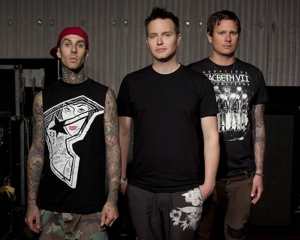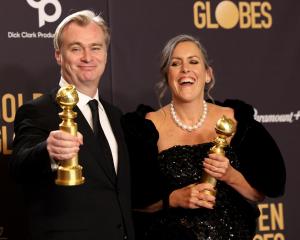To speak of the latest milestone by The Simpsons seems to restate the obvious.
Long before now, enduring life for The Simpsons and its brightly jaundiced folk was simply assumed.
What began 20 years ago as a fluke then erupted into a pop-culture juggernaut has continued to spin yarns, spawn characters and lampoon society with no end in sight.
This week in the United States, The Simpsons aired its 450th episode.
Once Upon a Time in Springfield, followed by an hour-long documentary from Morgan Spurlock (30 Days, Super Size Me), fancifully titled The Simpsons 20th Anniversary Special in 3-D on Ice.
During this season, when NBC's Law & Order boasts of having tied Gunsmoke as TV's longest-running prime-time drama, The Simpsons has seized the mantle as TV's longest-running scripted night-time series - period.
Ay, caramba! "I think we could do it for another 20 years, actually," Matt Groening, Simpsons creator, said recently before dissolving into giggles.
"Omigod! Another 20? We'll TRY," he chortled.
"We'll do our BEST!" Here's hoping the spectacular ensemble of voice talent keeps talking to the end.
After 20 years, Dan Castellaneta remains full-throated as portly, dimwitted dad Homer, Julie Kavner is tower-tressed mom Marge, Nancy Cartwright is lippy first-born Bart and Yeardley Smith is oversmart daughter Lisa.
Of course, these off-screen stars of The Simpsons are well served by visual artistry that, among things, keeps them shielded from the passage of time.
The show's writers play a huge role, too, with fastidiously crafted scripts that, by comparison, leave most sitcoms in the dust. (Granted, some fans may complain The Simpsons isn't as sharply realised as in earlier years, but still.) "What I love about The Simpsons is, it's so collaborative," Smith said.
"The actors do a third, the animators do a third and the writers do a third.
"That's how I see it."
Also part of the acting troupe is Hank Azaria, a go-to guy for numerous characters including police Chief Wiggum, Comic Book Guy and convenience-store owner Apu Nahasapeemapetilon.
Rounding out the core cast is Harry Shearer, whose stable of roles includes Mr Burns, Waylon Smithers, Ned Flanders, Reverend Lovejoy, Kent Brockman, Dr Hibbert and Principal Skinner.
Besides The Simpsons, Shearer (66) is best-known from his role as bassist Derek Smalls in the 1984 mock musical documentary This Is Spinal Tap, and subsequently in the real-life group that film inspired.
Among many current projects, he hosts his own signature channel on the My Damn Channel comedy website.
Conveniently, for Shearer, much of his creative output is echoed by The Simpsons, even though he plays no part in its writing.
"Matt has a satirical, anti-authority streak," says Shearer.
"From the beginning, The Simpsons was taking the side of the family against all the authority figures and institutions that buffeted them in the modern world.
"Certainly, that resonated for me."
As the years passed, Shearer's many voices were part of the emerging world of Springfield, an oblivious community that seemed satisfied to settle for less in nearly everything: public education; organised religion; TV news and kids programming; government, law enforcement, business, and food and drink intake; and certainly environmental issues, such as the nuclear power plant that employs Homer Simpson, of all people, as a safety inspector.
What's the message of The Simpsons?
That people, for all their highfalutin' talk, are willing to settle for less if it's easier or saves them a buck?
Has The Simpsons taken on a new, unexpected relevance thanks to the current economic downturn, when standards for everything seem under threat?
"You look around and the only person who ostentatiously and repeatedly proclaims his pursuit of excellence is Rush Limbaugh," says Shearer, then does a perfect imitation of Limbaugh: "I'm presenting broadcast excellence."
"That's got to tell you something," Shearer says.
"Everybody ELSE is just getting by."
But he, unlike most people taking stock of The Simpsons at this moment in its run, resists any grandiose claims for its legacy.
"Together with NFL football, The Simpsons put the Fox network on the map - whatever you think of that," he hedges.
"And Fox has changed the face of network television - you've got to decide for better or worse.
"I wish I could say that we inspired an awful lot of funny, smart, irreverent, acerbic shows that took a lacerating view of the institutions of society.
"But I don't think we have." - Frazier Moore












